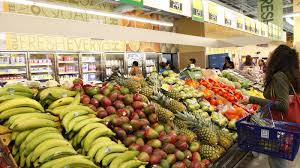A pricing dispute on the importation of cheap food could see Kenyan households continue to endure high costs as plans by the government to lower commodity prices through duty-free importation show early signs of the making of a scandal.
The duty-free imports of maize, rice, sugar and cooking oil expected to last for a year from January 20 are intended to help reduce local retail prices of the commodities, but wrangling over profit margins has overshadowed the programme.
The government targets the importation of 150,000 tonnes of rice, 125,000 tonnes of cooking oil, 200,000 tonnes of sugar, 50,000 tonnes of wheat and 80,000 tonnes of beans through the Kenya National Trading Corporation (KNTC).
A further 900,000 tonnes of duty-free maize importation had been scheduled starting February 1 by the Ministry of Agriculture. The maize imports programme has been held hostage by pricing wars, with millers boycotting the bids that have been snapped up by unnamed traders.
As Kenyans wait for a break from the high prices of food commodities, the row simmers among players in various industries and faceless traders who have clinched the deals to import the products. There are also no vessels scheduled to dock at the port of Mombasa with maize, according to the Kenya Ports Authority’s ship list.
In the list of vessels expected in the country until March 1, the port of Mombasa is expected to receive a total of 27 vessels in the next 14 days – 15 container cargo vessels, three car carriers, eight conventional vessels and an oil tanker.
This raises fears of a looming crisis, even as millers hold their ground not to import under conditions set by the government.
The maize millers turned down the government’s offer to import under the duty-free programme indicating that a condition to import a 90kg bag of maize at KSh4,200 ($33.26) was impractical.
They said high international market prices and shortage of the commodity could push up the cost to KSh6,000 ($47.52). But some have questioned the millers’ sincerity, given past cases where maize was speedily shipped in from neighbouring countries despite initial reports it was to be ferried from as far as Mexico.
By Wednesday, the Kenyan government and millers had not agreed on key issues surrounding the importation, dimming the chances of households getting cheap maize flour any time soon.
This is even as the price of a 2kg packet of maize flour, which was expected to come down considerably, continues to retail at KSh190 ($1.50) in most shops.
Sources have intimated to the Nation that some brokers who have been issued with licenses to import cheap maize have been unable to do so and have unsuccessfully resorted to asking millers to import on their behalf.
“Some politically connected persons who were issued with the licenses to import are now approaching millers quietly with offers to allow them to import with the licenses, but millers are reluctant because of the condition on prices,” a source said.
Agriculture Principal Secretary Harsama Kellow said the traders who were issued licenses to import indicated they would provide the product at KSh4,200 ($33.26) for a 90kg bag.
“The aim of these imports is to lower the cost of flour and we cannot allow millers to import maize at any price that they want as this will not meet the government’s objective,” said the PS.
He added: “We expect the duty-free maize to arrive in the country early next month. The delay is due to several logistical challenges, including approval of traders to bring in the produce.”
All the 23 members of the Cereal Millers Association (CMA), who had applied to participate, pulled out following the disagreement on landed prices.
“To the best of our knowledge, we have not seen a list of gazetted importers and none of our members has been issued a permit to import. At the moment, the cost of a 90-kilo bag of maize grain will vary depending on the source, but would be in the range of KSh5,500 ($43.56) to KSh5,600 ($44.35),” said CMA Chief Executive Officer Paloma Fernandes.
“Normally, procurement of grain abroad can take between 30 and 60 days and is subject to availability of grain. We can only estimate the time once any of our millers get their permits,” Ms Fernandes added.
“Within a week, you will see maize flour prices rising again and it could cross KSh200 ($1.58) since maize prices have risen from about KSh4,800 ($38) to KSh6,000 ($47.52) for a 90kg bag locally after farmers realised no cheap imports are coming in as was expected,” a miller said.
“The produce is currently going at between KSh4,800 and KSh5,200 per 90kg bag at the farm gate level, but the stocks are not sufficient to sustain our crushing capacity for the next month,” said Mr David Maina, a miller in Eldoret.




